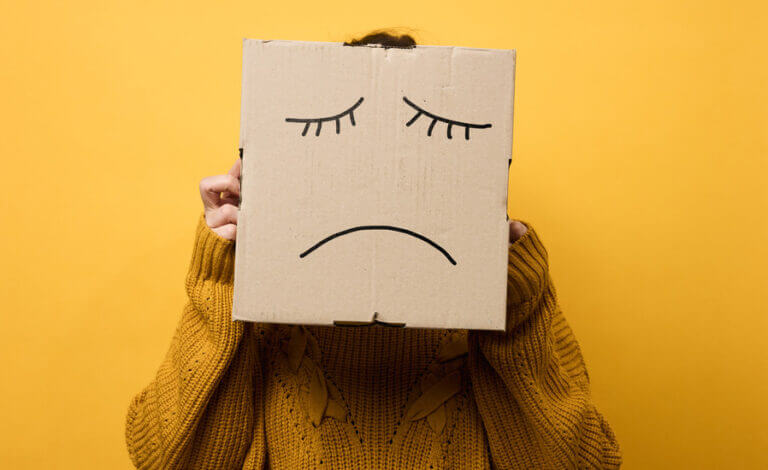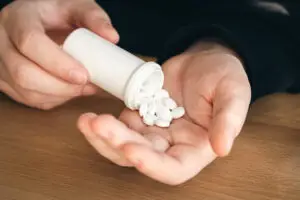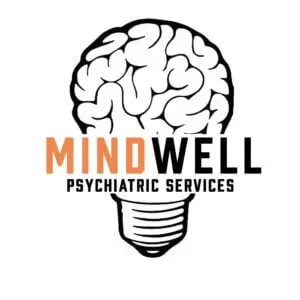Why Treating Anxiety During Suboxone Treatment Is So Important
Starting Suboxone treatment is a brave step toward recovery. It helps your body stop craving opioids and start healing. But your body is not the only part that needs care. Your mind matters too. Many people feel anxiety during Suboxone treatment, and that can make recovery harder.
At MindWell Psychiatric Services in Las Vegas, we care for both your body and your mind. When you treat anxiety and depression early, your path to recovery becomes smoother and stronger.

Understanding Anxiety During Suboxone Treatment
When someone begins Suboxone, their brain and body are adjusting to life without opioids. This is a big change, and it can cause anxiety during Suboxone treatment.
Here’s why anxiety can happen:
- Your brain’s “feel-good” chemicals are finding balance again.
- You start to feel emotions that opioids once numbed.
- Sleep changes can make you tired or restless.
- You may worry about staying sober or handling stress.
These feelings are common and normal. They show that your brain is healing. But if anxiety grows too strong, it can lead to cravings or sadness and that’s why mental health care is so important.
How Anxiety and Depression Affect Recovery
Recovery is not just about stopping a drug. It’s about building a new way of living. Anxiety and depression can slow that process down.
- Anxiety makes it hard to relax or trust the process.
- Depression can make you lose energy or hope.
Together, they can block progress if left untreated. When we treat these problems during Suboxone care, people feel calmer, think clearer, and stay on track with their recovery goals.
Signs You Might Have Anxiety or Depression
Sometimes people don’t notice they are feeling anxious or depressed. They just feel “off.” Here are signs to look for:
Signs of anxiety:
- Racing heartbeat or tight chest
- Feeling restless or unable to sit still
- Worrying about things you can’t control
- Trouble sleeping because your mind won’t stop thinking
Signs of depression:
- Feeling sad or empty for many days
- Losing interest in hobbies or friends
- Sleeping too much or too little
- Feeling tired even after rest
- Thinking life will never improve
If you notice several of these signs, talk to your psychiatrist. They can help ease anxiety during Suboxone treatment before it becomes too heavy to carry alone.
How a Psychiatrist Helps Ease Anxiety During Suboxone Treatment
Psychiatrists understand how mental health and medication work together. They can help you manage anxiety, depression, and cravings all at once. This care helps reduce anxiety during Suboxone treatment, so your body and mind can heal together.
At MindWell, our psychiatric team may:
- Check your mood at each visit to track progress.
- Adjust medications to balance anxiety or sadness.
- Offer therapy to build coping skills for daily stress.
- Teach breathing or mindfulness to calm racing thoughts.
- Encourage small daily wins to build confidence and hope.
How Treating Anxiety Improves Suboxone Results
When anxiety is under control, people can focus better on recovery. Treating mental health along with Suboxone makes every part of healing stronger:
- Clearer thinking: Less worry means better focus on therapy and goals.
- Better sleep: Calm nights help the brain heal faster.
- More control: You respond to stress instead of reacting to it.
- Fewer cravings: When anxiety is lower, the urge to use fades.
- Happier days: A peaceful mind makes daily life more enjoyable.
Simple Daily Steps to Reduce Anxiety During Suboxone Treatment
- You can do many small things each day to help your mind stay calm and balanced:
- Move your body: Take a walk, stretch, or dance. Movement lowers stress.
- Eat balanced meals: Healthy food keeps your brain working right.
- Sleep on a schedule: Try to wake up and go to bed at the same time.
- Talk openly: Share your thoughts with a therapist or friend you trust.
- Breathe slowly: Deep breathing helps your body feel safe again.
- Join support groups: Being around others who understand helps you feel less alone.
Each small step adds up. Together, they keep anxiety lower and your recovery strong.
What Happens When You Treat the Whole Person
When anxiety, depression, and addiction are treated together, real healing begins. You feel stronger, more hopeful, and ready for a better life. At MindWell, we’ve seen how treating anxiety during Suboxone treatment helps people:
- Stay in recovery longer
- Avoid relapse triggers
- Build better relationships
- Regain confidence in daily life
Your mind becomes your ally instead of your enemy. You start to trust yourself again, and that’s when recovery feels real.
You Are Not Alone
Many people in Las Vegas deal with anxiety while healing from opioid use. You don’t have to do it alone. At MindWell Psychiatric Services, our team works with you to manage both mental health and recovery care.
Suboxone treatment supports your body.
Psychiatric care supports your mind. Together, they give you the power to heal completely one step at a time. Contact MindWell Psychiatric Services to discuss suboxone treatment options.





